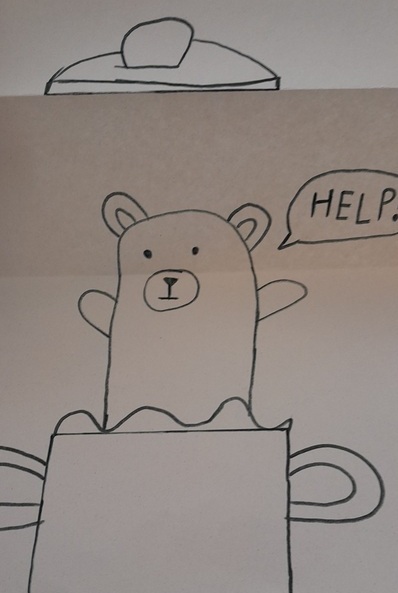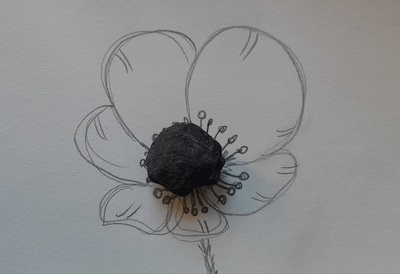
This post, like many many others, starts in the classroom when yours truly spends countless hours every week. Some of those hours are happy hours, some are very much not. Sometimes, no matter how passionate and dedicated you are as a teacher, no matter how much time you have dedicated to preparing amazing lessons, resources and activities, it is just not coming together and it does feel like it is the absolute end of the world. But, definitely, it is not. But it feels like it.
In the sessions devoted to classroom and management behaviour, there is this one activity that we do: ‘Look at the picture of the classroom. What is wrong with it?’ My trainees usually have lots of great ideas but where I am trying to get them is the fact that, beautiful as it is, this photo, a real class and a real lesson does not really look like that 100% of the time. So google, with all its amazing visuals, this time helps us create unrealistic expectations regarding our professional life.
I am not saying that it does not happen, that kids never get fully interested and involved in the task or that the teacher never has the full attention of the group. They do and when it does, it is the best thing ever, cloud number 9 and the top of the world. But, to be perfectly honest, a day like this one in the Kindergarten Cop, this is also a part of the teacher’s life.
Those bad days are perhaps more likely to happen when you are less experienced and somewhere at the start of your teaching career but (and I am sorry to be saying that), no matter how many years you have been teaching for, bad days can still happen. Although, indeed, as experienced teachers, we are more prepared for them and better equipped to deal with them, on the spot and in the long run. That is why, in this post, I decided to share how I resuscitate myself and get myself back on my feet from having crumbled into pieces after a bad day at school.

Prevention first
Apart from lesson planning and keeping your resources organised, it is very important to remember that a teacher needs to be alive and feeling well in order to remain happy, smiling and passionate about the lesson and in order to be able to give a good lesson. That means that a teacher needs to eat and drink, breakfast and lunch and snacks, and, a teacher must find time for her / his own breaks.
I know very well how easy it is to skip breakfast, lunch or the mid-lesson snacks (or, even more impotantly, the mid-lesson toilet runs) because, well, because things just happen. Kids lose things, kids need help, kids have a bad day and a meltdown and a teacher, more often than not, just brushes off her/ his needs and does whatever is necessary to help the kid. It’s just in the blood.
Then there are the unplanned meetings with the headmaster, the admin, the parents and sometimes it is possible to put them on hold or to reschedule them and sometimes it is not. Again, the break (whatever its purpose) gets cancelled or cut short. The teacher goes on teaching without food, coffee, water or worse and, naturally, that has an impact on the level of tiredness and / or stress and on the lesson.

When the bad day has already happened…take time out.
Most of the time this will be a very short time out slot, a few minutes in the teachers’ room, or even in your classroom, looking out of the window, wasting time, listening to your favourite song, or, if you are really lucky and the breaks are long enough to allow for that, you will be able to get out of the school to pick up a coffee somewhere round the corner or simply to take a walk, somewhere in a slightly different environment.
This will help to see the world from a different perspective and, naturally, to regain the peace and quiet for the teacher.

Talk to your teaching buddies
As soon as the opportunity arises, chat to your teaching buddies. It doesn’t matter if they themselves had a good day and will be able to act as the source of the energy or if they had an equally disastrous day and there will be there for you to compare the levels of the educational catastrophy. The most important thing is that this will be a chance to talk to someone who fully understands how horrible it feels to have to walk home after a bad day at school and who can offer an ear if not a real solution, although the latter is also an option, too, because the school life is full of fiascos, tragedies and all kinds of situations and, quite likely, your friends have it already happened to them and might be able to tell you about how they sorted it out. In any case, listening to their stories will help to understand that you are not on your own and that’s a lot!

Talk to your VIP, whoever they are
For me, personally, equally important is talking to my Very Important People, not only because that is what they are, but, also, because they have absolutely nothing to do with education, teaching English and teaching children.
Getting valuable advice or even having someone to talk to, in order to relate all the horrors of the day is not the main aim of these conversations. On the contrary, these help me get a completely different perspective and go back to basics, to everything else in life that matters an that is as far as possible from the young learners EFL/ ESL. Just to check that the world outside of it still exists and that it is doing great.
I love my job and I cannot imagine not teaching kids but, on some days, I need to forget about children, parents, child development, methodology and everything related to it, specifically in order to recover and to recharge my batteries, physiological and psychological.

Get a hug (real, virtual or metaphorical)
Well, yes, just that! The hug can be real, the hug can be virtual as not everyone huggable might be available physically but it can also be any way of pampering yourself and doing somethinggood for your body. A nice meal, a pint of beer, a quiet evening, an evening with your favourite music, a piece of chocolate, a walk with a dog, a bunch of flowers, a cup of coffee, a sports game, a round of your favourite computer game, exercising, a combination of a few of those or all of them together. Whatever it is that makes you feel good and that brings a smile to your face.
For example, I am a real public transport supporter but, on those really difficult days, I like to take a taxi home and being in the backseat, driven home, with my favourite city in the world blinking on the other side of the window, it really does calm me down.

Sleep on it
Or, in other words, not being too harsh on yourself and taking time to reflect and to see the whole day and everything that happened from a different angle and from a distance.
The world looks a bit different after a proper night’s sleep and only then it is possible to reflect on the day, to connect the dots and to understand better the reason behind the kids’ behaviour or the explanation why the activities fell flat on their face. Finally, this distance will also help to see the good things that also happened because they always do, although, admittedly, they are easily overshadowed by the disasters.

Try again!
Last but not least, there is always tomorrow, another lesson and another day to have another go and see what happens. With young learners especially, the first time we play a new game or try a new activity, in a new format and with a new set of rules, the very first attempt is just a reconnaissance, for the teacher, for the resources and for the kids. It is almost bound to be a failure and it is a big mistake not to give it another shot.

Happy teaching!
